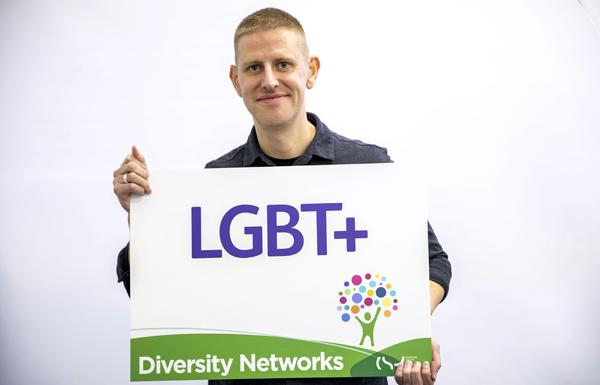Ian Scrase, convenor of the CSP’s LGBT+ network, explains why his experiences have led him to believe that now is the time to work together and push for change.
Brené BrownTrue belonging doesn’t require that we change who we are; it requires that we be who we are.

For many of us, truly belonging and being who we really are is a scary thing. Even before I did, at a young age, people realised I was different to the expectation of society. Eventually, I came to realise it, too, and over the coming years, I went through the raw emotional toil of coming to accept that the difference was the fact I was gay.
Having accepted my identity, I then made the choice to share this, to ‘come out’ and tell those loved ones of mine who I am. But what I never quite realised would happen is that now, 20 years later, near enough to the month, I continue to have to come out on a regular basis. But why?
The LGBTQIA+ (lesbian, gay, bisexual, transgender, queer – or questioning – intersex, and asexual) community challenges the very composition of the heteronormative and binary society we live within.
We have witnessed many advances in this society, in all their intricacies. We see them daily, even minute-by-minute.
Yet members of the LGBTQIA+ community continue to face challenges and micro aggressions, making it difficult, or even impossible, for us to be who we really are and to truly belong.
In a podcast of LGBTQIA+ allied health professional (AHPs), released last week to mark Pride Month, it was sobering to hear the realities of prejudice, ranging from micro aggressions to explicit discriminatory behaviour, faced by people within our LGBTQIA+ community. Such experiences are often intensified by the intersectionality of identities and communities in which people live and work.
In each of those stories, individuals shared how they responded. In some cases, the person had the confidence to speak up. In others, they left employment due to the vindictive way in which they were treated. Daily, LGBTQIA+ people are faced with a decision on how to respond and the question: how safe do I feel?
I’m sure no one would want anyone to suffer any detriment for being who they are, or to be denied being open. But, as we can see, this still occurs.
The CSP’s LGBT+ diversity network aims to drive change together – not just for our members but also those we work with and serve. But we cannot do this on our own. There is an acknowledgement that, as a group, we have some nuances and comparable experiences with other protected characteristics, and an awareness that our community has intersectionality with other identities.
Now is the time for the network to increase its links both within the organisation and beyond. Now is a key opportunity to start to come together to share our stories. Now is the time for everyone to belong.
Find Out More
Number of subscribers: 2
